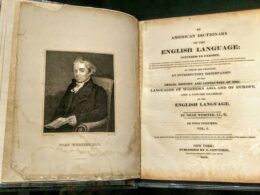Unraveling the Beauty of Language
English literature and composition hold a special place in the world of written art. It encompasses a vast array of literary works that span centuries and continents. From the poetic verses of William Shakespeare to the thought-provoking prose of Jane Austen, English literature has evolved and shaped the way we communicate and express ourselves. In this article, we will delve into the rich tapestry of English literature, exploring its history, key components, and its relevance in today’s world.
Table of Contents
The Origins of English Literature
1. The Beginnings of Written Expression
English literature has its roots in the early history of the English language. Old English, also known as Anglo-Saxon, marked the beginning of written expression in English. Epic poems like “Beowulf” emerged during this period, showcasing the bravery and heroism of ancient warriors.
2. The Influence of Middle English
With the Norman Conquest of England in 1066, Middle English came into prominence. During this time, works like Geoffrey Chaucer’s “The Canterbury Tales” depicted the diverse society and culture of medieval England.
3. The Renaissance and Shakespearean Era
The Renaissance period brought a surge of creativity to English literature. William Shakespeare, often regarded as the greatest playwright in history, produced timeless classics like “Romeo and Juliet,” “Hamlet,” and “Macbeth,” which continue to captivate audiences worldwide.
Key Components of English Literature
4. Poetry: A Symphony of Words
Poetry, with its rhythmic and metaphorical language, allows writers to evoke emotions and thoughts with elegance. From the romantic verses of Lord Byron to the poignant poems of Emily Dickinson, poetry showcases the power of language to move hearts and minds.
5. Prose: The Art of Storytelling
Prose forms the backbone of English literature, encompassing novels, short stories, essays, and more. The works of Jane Austen, Charles Dickens, and Virginia Woolf demonstrate the beauty of storytelling and its ability to illuminate the human experience.
6. Drama: Bringing Words to Life
Theatrical plays have been an integral part of English literature since ancient times. Playwrights like Oscar Wilde and Tennessee Williams crafted gripping dramas that explore human nature and societal norms.
The Relevance of English Literature Today
7. A Reflection of Culture
English literature and composition provides insights into the historical, social, and cultural contexts of different periods. By studying literary works, we gain a deeper understanding of the beliefs and values that have shaped human civilization.
8. Enhancing Language Skills
Engaging with English literature aids in refining language skills, such as vocabulary, grammar, and writing style. Aspiring writers often draw inspiration from the works of established authors to hone their craft.
9. Fostering Critical Thinking
Literary analysis encourages critical thinking and interpretation. Readers are prompted to question characters’ motivations, societal norms, and underlying themes, fostering a deeper appreciation for complexity and nuance.
Embracing the Beauty of Language
10. The Power of Imagination
English literature sparks the imagination and transports readers to distant lands, fantastical realms, and different eras. This escapism is a cherished aspect of literary exploration.
11. The Catharsis of Emotions
Literary works often resonate with readers on a personal level, providing an emotional catharsis and a sense of belonging to shared human experiences.
Conclusion
English literature and composition stand as a testament to the boundless capabilities of the written word. From its early origins to the digital age, it continues to inspire, challenge, and connect people across the globe. By embracing the beauty of language, we enrich our lives and gain profound insights into the human condition.
FAQs
- What are the origins of English literature? English literature has its roots in Old English and Middle English periods, with notable works like “Beowulf” and “The Canterbury Tales.”
- Who are some prominent playwrights of English literature? William Shakespeare, Oscar Wilde, and Tennessee Williams are renowned playwrights in English literature.
- How does English literature enhance language skills? Engaging with literary works helps in improving vocabulary, grammar, and writing proficiency.
- Why is critical thinking important in literary analysis? Critical thinking allows readers to explore underlying themes and motivations, leading to a deeper understanding of the text.
- What is the role of English literature in contemporary society? English literature provides insights into culture, fosters critical thinking, and serves as a source of artistic and emotional expression.








